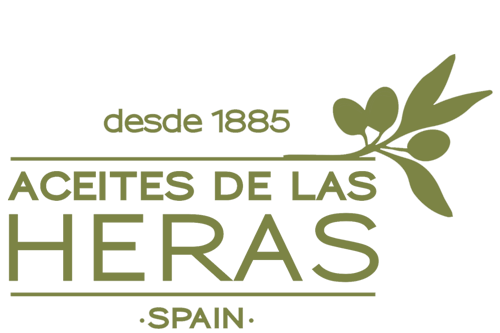General
Organic food and its benefits
In a world that is increasingly aware of the importance of caring for our environment and preserving our health, evidentlly the demand for organic food has reached new heights. Have you ever wondered what it really means to be green? In our blog post today, we’ll explore the rigorous standards and practices required in organic foods and olive oil production, as well as the benefits they offer both for us and the environment. Get ready for a sustainable journey as we explore how the increasing demand for organic food has changed the way we enjoy food in Spain and also globally!
organic food market
The global organic market is constantly growing thanks to all of us who care about the environment. This growth reached a turnover of around 178.4 billion dollars in 2021, which is a growth of 223% compared to the figures of 10 years ago, which were around 55 billion dollars. Moreover, it seems that growth will not stagnate, but will continue to trend in the coming years. By 2030, the market value is expected to be almost 500 billion dollars, which would indeed represent a growth of 179% compared to 2021.

Additionally, according to the latest study by IFOAM (International Federation of Organic Agriculture Movements), the sustainable surface area in 2020 increased by 3.5% in Europe, with Spain being the country with the largest surface area devoted to organic production after France. In Spain, olive groves are precisely the organic crop with the largest cultivated area with 222,723 ha.
According to FIBL, the green market in Europe is growing +3.8% global as has been noted, reaching a turnover of 54 billion euros. The average expenditure per person in Europe in 2021 was double that of the 2012-2021 decade, with a value in 2021 of +100€ per person.

Source: FiBL
Furthermore, in the case of Spain, as we can see in the image below, the average expenditure on the purchase of organic food stood at 60€ per inhabitant in 2023, below the EU average. However, expenditure has been increasing every year and currently the value of the organic market in Spain is €2,856 million. This is partly due to the policies implemented by the EU for the expansion of organic farming land and the achievement of the EU 2030 target of 25% of cultivated land being eco-friendly.

IFOAM
IFOAM (International Federation of Organic Agriculture Movements).
COMISIÓN EUROPEA.
boosters
Environmental and health concerns have led to a rising interest in bio and natural products in recent years.
More and more people are looking for sustainable and healthy alternatives for their lifestyle, which has boosted several trends and factors related to this phenomenon. From environmental awareness to the influence of social media and changes in policies and regulations, multiple factors are converging to fuel the growth of this industry all over the world.
- Environmental awareness: More and more people are environmentally aware and want to reduce the negative impact of man’s actions on the environment. This increases the interest in ecological and natural products that are produced in a sustainable way.
- Health-consciousness: Today, health concerns are increasing the consumption of organic and natural food, which are chemical-free, healthier and less harmful.
- Wide range of supply: Thanks to the increase in organic production, there is a wide range of products available at more affordable prices, allowing consumers to integrate them into their daily lives.
- Influence of social media: This phenomenon has prompted the consumption of organic food as consumers have access to research, opinions and testimonies that support the use of bio products.
To sum up, people are opting for planet-friendly food and this effect is spreading worldwide with significant increases in the sale of sustainable products, especially in Europe, North America, and Asia.
In this line, Europe through the new CAP 2023-2027 (Common Agricultural Policy) focuses on the achievement of three general objectives:
- BIODIVERSITY: Support and strengthen environmental protection.
- ORGANIC AGRICULTURE: Ensuring food security.
- IMPROVED SOCIAL CONDITIONS: Bracing the socio-economic network of rural areas.

organic olive oil benefits
Bio production has been introduced in all sectors, and likewise, bio-production has been introduced in the olive oil sector. Organic extra virgin olive oil is produced avoiding the use of pesticides, herbicides, and chemical fertilisers to obtain a product that is characterised by:
- Higher nutritional quality: Because organic olive oil is not exposed to chemicals at any time, it can contain higher levels of antioxidants and healthy acid fats such as omega-3 and omega-6, which are beneficial for cardiovascular health and hormone balance.
- Environmental protection: The production of organic EVOO follows sustainable agricultural practices that promote the conservation of land, water, and biodiversity. This reduces both the carbon footprint and soil and water pollution, improving the preservation of natural ecosystems.
- Supporting rural areas: Supporting sustainable agriculture encourages an increase in the eco-friendly market, supporting the farmers who grow and the factories that produce organic extra virgin olive oil.

Source: Mediterranean Organic Production and Climate Change Study Source: According to Winqvist et al., 2012. ‘Land-use intensity and the effects of organic farming on biodiversity: a hierarchical meta-analysis. Source: MAPA, 2021.
certification of organic food
how to identify organic food?
It is important that eco-friendly food is certified by a legal certificate, as it provides a reliable guarantee that the product complies with sustainable standards and practices. A certificate provides transparency and authenticity to consumers. Recognised bio stamps or labels, such as the organic stamp in the European Union or USDA Organic in the United States, indicate that extra virgin olive oil has been produced according to specific organic farming guidelines.

For that reason, whether you are a food importer or distributor looking for an organic EVOO provider, you need to consider that the provider accounts with the right sustainable certifications that apply in your country. Some certifications may have international recognition and be accepted in other countries with no need for additional validation. There are also equivalence agreements between some countries like U.S. & EU Equivalency Agreement, which means that sustainable operations certified to the USDA organic or EU organic standards may be labeled and sold as bio in both countries. However, in some countries, an evaluation and adaptation process may be required to meet local or regional requirements.
Therefore, EU certification confirms that olive oil producers meet strict conditions for production, processing, transport, and storage. A product can only bear the organic label if it contains at least 95 % eco-friendly ingredients and if the remaining 5 % meet strict conditions.
Check out our organic extra virgin olive oil El Renegado
At Aceites de las Heras, we are proud to produce high quality organic EVOO that reflects our commitment to sustainability and respect for the environment.
Thanks to the certification of the organic seal of the European Union, we can ensure that our organic olive oil meets the stringent standards of sustainability and quality for exports





